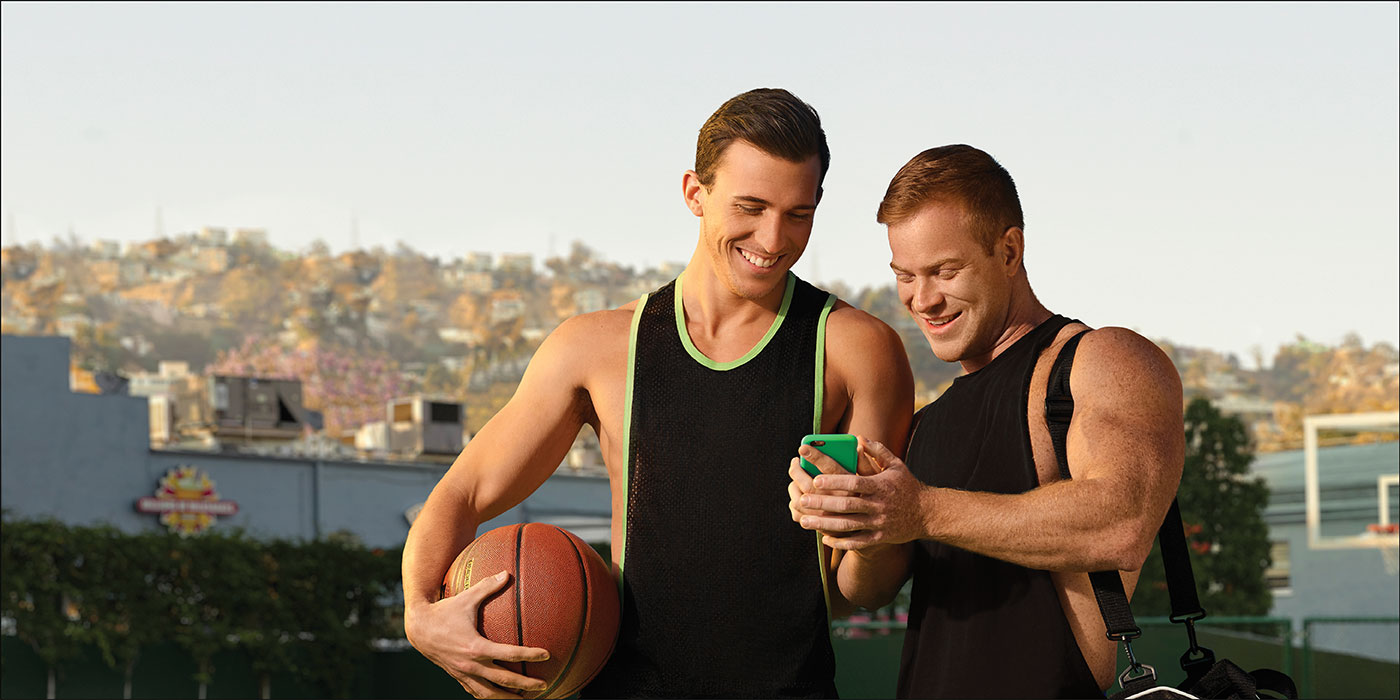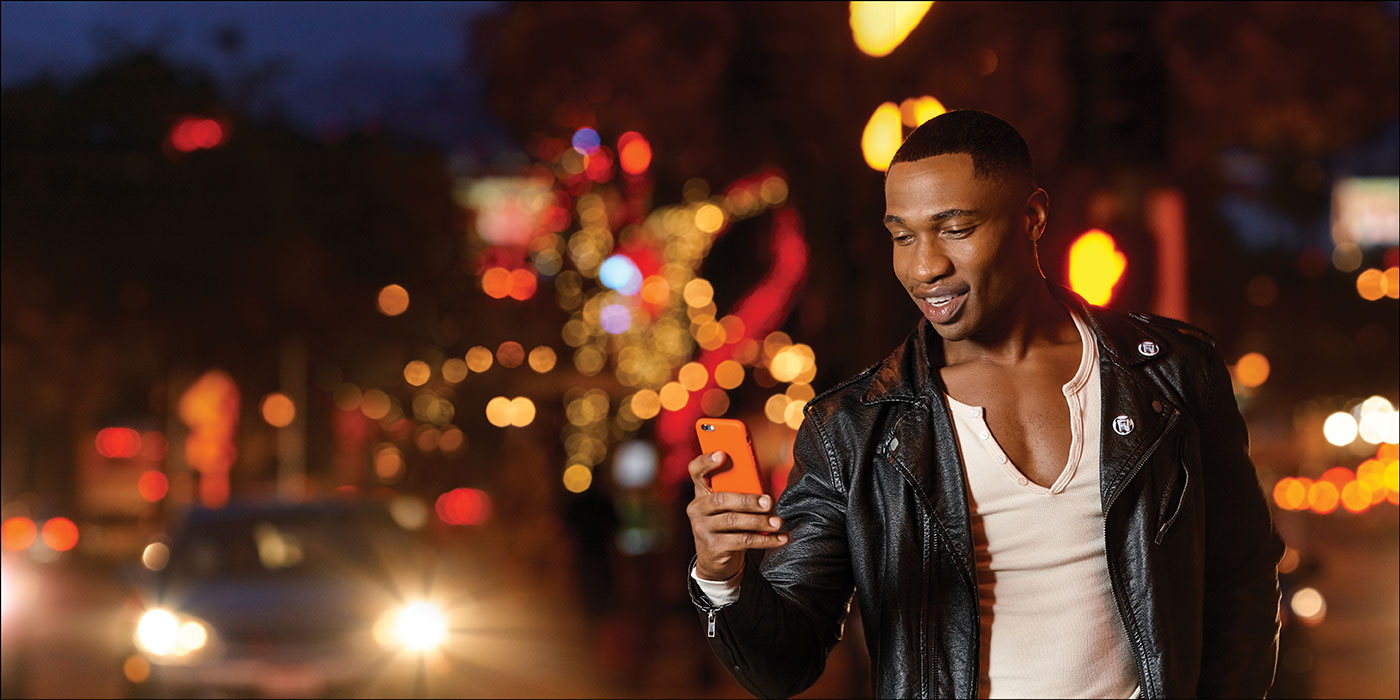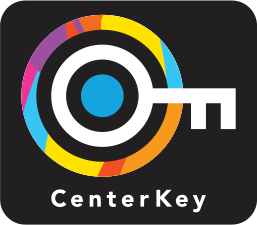











When you get tested for HIV and other STDs at the Center-WeHo, you’ll get our exclusive CenterKey Rewards Card that unlocks special deals at local businesses. We’re talking bars, restaurants and retail stores… the good stuff. Currently valid offers are listed below. Check back frequently, because we continue to add new businesses that support your sexual health.
The card is valid for 3 months, so when it expires, you know it’s time to get tested again and to re-validate your card. Show you’re doing your part to stay healthy. Show your card!
|
The Abbey
Expedited entry (pending capacity) & 10% off lunch Monday - Friday
692 N Robertson Blvd
Bar 10
1/2 off first drink
8933 Santa Monica Blvd,
Café D'Etoile
Free dessert (limit 2 per table)
8941 1/2 Santa Monica Blvd,
Kitchen 24
Special Offer Cards
8575 Santa Monica Blvd, |
Chi Chi LaRue's
10% discount on regular priced products
Shake Shack
Free fry with any purchase
8520 Santa Monica Blvd,
St. Felix
15% off (happy hour excluded)
8945 Santa Monica Blvd,
Tortilla Republic
20% off lunch items Tue-Fri
616 N Robertson Blvd, |
|
|
WHEN & WHERE CAN I GET TESTED?We offer HIV/ STD testing and STD treatment weekdays 11 am - 2:30 pm and 4– 7 pm at two convenient locations – the new Los Angeles LGBT Center-WeHo and the Center’s McDonald/Wright Building in Hollywood. On the fourth Wednesday of even numbered months, we will be open 11 am – 2:30 pm. To reduce wait time, appointments are encouraged and can be made by calling 323.860.5855. Walk-ins are also welcome. |
|
|
HOW MUCH DOES IT COST?Testing for HIV and other sexually transmitted diseases is free (donations are welcomed). If you need treatment, we ask those who can afford it to help cover the costs or to allow us to bill their insurance carrier, if they have one. But no one will ever be turned away because they’re uninsured or unable to pay. |
|
|
WHAT DO I NEED TO BRING?For a full HIV/STD screening, you must bring your photo ID. Your test results, which are confidential and tracked by name, they’re only viewed by Center medical staff and health officials. You have the option to request a printed report of your results. If you’re not comfortable showing a photo ID, you can be tested for HIV anonymously (without providing your name) at the McDonald/Wright building, but not the Center-WeHo. For STD testing, however, a photo ID is always required. |
|
|
WHAT ABOUT PARKING AND PUBLIC TRANSPORTATION?PARKINGCenter-WeHo: One-hour free parking before 6 p.m. is available across the street next to Tender Greens. Free validated parking is also available at the West Hollywood city parking garage at 625 N. San Vicente Blvd, next to the new library. McDonald/Wright Building: Free, validated parking is available in the lot next door. After 6 p.m., free parking is available behind the building. PUBLIC TRANSPORTATIONSeveral bus lines serve both the Center-WeHo and the McDonald/Wright building, which is on the Metro Red Line midway between the Hollywood/Vine stop and the Hollywood/Highland stop. Visit Metro.net to plan your trip. |
|
|
WHAT IF I TEST POSITIVE FOR HIV OR STDs?If you have symptoms of a sexually transmitted disease, we can provide medicine the same day you visit. If you have no symptoms but test positive for an STD, we’ll notify you by phone. Then we can schedule an appointment to provide medical treatment. If the test reveals an HIV infection, our counselors will help you understand the implications of living with HIV and tell you about valuable resources at the Center, including these free and low-cost services:
|
|
|
I HAVE SYMPTOMS OF AN STD – CAN YOU HELP?Yes! Please come meet with one of our providers and if you have symptoms, we may be able to offer immediate treatment for the STD after we test you for gonorrhea, chlamydia and syphilis. Results for those tests are available in a week. Call 323.860.5855 to schedule an appointment. |
|
|
What is post-exposure prophylaxis?Post-exposure prophylaxis (PEP) is the practice of starting a month-long (28 day) course of anti-HIV medications within 72 hours of possible exposure to the virus to prevent permanent infection. These medications keep HIV from making copies of itself and spreading through your body. To be effective, PEP needs to be started as soon as possible, preferably within 36 hours and no later than 72 hours after exposure to HIV. PEP consists of 2-3 antiretroviral medications that are prescribed by a medical provider. The provider will determine what treatment is right for you based on how you were exposed to HIV. PEP is safe but may cause side effects like nausea in some people. These side effects can be treated and are not life threatening. PEP is not 100% effective; it does not guarantee that someone exposed to HIV will not become infected with HIV. |
|
|
How do I get PEP?The Los Angeles LGBT Center and our Center-WeHo offer PEP. Based on your income, you may even qualify for free treatment. To learn more, please call us at 323-860-5855 (option 4), Monday through Friday from 11 a.m. - 6 p.m. Note: If you believe you were exposed on Friday night or on Saturday, you should consider going to the emergency room of a hospital to access PEP. |
|
|
How does PEP stop HIV?PEP contains some of the same medicines that people with HIV take to stay healthy. If you are exposed to HIV, it takes a few days for an HIV infection to take hold in your body. As soon as you start PEP, these medicines begin to stop the virus from multiplying. As you continue taking PEP for the full 28–days, cells with HIV die and the virus stops spreading to the rest of your body. PEP’s effectiveness varies depending on when it is initiated; according to the CDC it can be up to 80% effective. However, it is not effective in all cases. |
|
|
Who Needs PEP?PEP can be used to treat people who may have been exposed to HIV during a single event (e.g., during episodes of unprotected sex, needle-sharing injection drug use, or sexual assault). PEP should only be used in uncommon situations right after a potential HIV exposure. It is not a substitute for other proven HIV prevention methods, such as PrEP, correct and consistent condom use, or use of sterile injection equipment. Because PEP is not 100% effective, you should continue to use condoms with sex partners while taking PEP and should not use injection equipment that has been used by others. This will help avoid spreading the virus to others if you become infected. |
|
|
When Should I Take PEP?To be effective, PEP must begin as soon as possible, but always within 72 hours of exposure. Your healthcare provider will consider whether PEP is right for you based on how you might have been exposed and whether you know if the person whose fluids you were exposed to might be HIV-positive. You will be asked to return for more HIV testing at 4 to 6 weeks, 3 months, and 6 months after the potential exposure to HIV. For more information, see the Center for Disease Control and Prevention's (CDC's) PEP Basics page: http://www.cdc.gov/hiv/basics/pep.html |
|
|
What is pre-exposure prophylaxis?Pre-exposure prophylaxis, or PrEP, is commonly known as the HIV prevention pill. PrEP involves taking a daily dose of Truvada, which is made of two drugs—Tenofovir and Emtricitabine. After taking them for a period of time, they can prevent HIV from infecting healthy cells. |
|
|
How effective is PrEP?When used correctly, PrEP provides 92%–99% reduction in HIV risk for HIV-negative individuals who take the pills every day as directed. PrEP is even more effective when it is combined with other prevention methods, such as condoms. |
|
|
Do I still need to use condoms if I’m on PrEP?Some people will keep using condoms while on PrEP and others will decide to stop using them. If you are already using condoms consistently, and doing so makes you feel comfortable and protected, then keep doing what feels right to you. Many people struggle with using condoms consistently, which is one reason why PrEP was developed. You have to decide for yourself what level of protection feels right and gives you the peace of mind to lead a sexually fulfilling life. |
|
|
Will PrEP also protect me from other sexually transmitted diseases (STDs)?PrEP does not prevent you from contracting sexually transmitted diseases (STDs) such as gonorrhea, chlamydia, or syphilis. Consistent and correct use of condoms can reduce your risk of contracting or transmitting STIs. It is important for you to be regularly tested for these infections and to be treated promptly if you find out that you are infected. |
|
|
How often do I need to take PrEP for it to be effective?The use of daily PrEP is highly effective if taken every day, less effective if pills are not taken daily. Before starting PrEP, it’s important for you to determine if you are comfortable and confident in your ability to take a daily pill to prevent HIV. PrEP only works if you take it! NOTICE: When starting PrEP, it is estimated that 7 days of daily dosing is needed to achieve protective concentrations for receptive anal sex. |
|
|
How can I decide if PrEP is right for me?PrEP is not the right fit for everyone but may be useful for HIV-negative individuals who have substantial and ongoing risk for HIV infection, through either sex and/or injection drug use. If you can answer yes to any of the questions below, then PrEP may be one HIV prevention strategy to consider.
Note: PrEP is not just about taking a pill every day. If you decide to take PrEP, you’ll need to see your provider at least every three months for routine care and HIV testing. |
|
|
How can I access PrEP?We can help you determine whether PrEP is right for you and if so, issue and fill a prescription on-site. We can even help you qualify for financial assistance programs if PrEP isn’t covered by your insurance or you are uninsured. Call us at 323-993-8990, option 4 and let our staff know you’d like to talk about getting PrEP. Your primary care provider can also prescribe PrEP for you. Before discussing it with your doctor, we suggest you make a list of the reasons you think PrEP would be a good choice for you. Be as honest as possible so your provider can help you make the best decision. If your sex life is a hard topic to talk about, say that to your provider. It will help to start the conversation. Some providers may not know about PrEP or may not be knowledgeable or comfortable discussing PrEP or your sexual health. If you do not have a provider, or if your medical provider does not feel comfortable helping you make this decision and prescribing PrEP, you're welcome to get your medical care from the Los Angeles LGBT Center. If you and your provider agree that PrEP is right for you, your provider will conduct a general physical and test you for HIV and other STDs. Your blood will also be tested to see if your kidneys and liver are working well. NOTICE: Be sure to inform your provider about any current medications that you are taking (including vitamin supplements, work out supplements, herbs, etc.). Example: Creatine supplements can throw off the blood test that measures kidney function. |
|
|
What about side effects from taking PrEP? How will my body be affected?PrEP is generally safe and well tolerated. Some people in clinical studies of PrEP had early side effects such as nausea, upset stomach, diarrhea, mild headache, or dizziness, but these were mild and usually went away in the first month. PrEP may also cause decreases in kidney function and bone density, however, research suggests that side effects while using PrEP are generally mild and uncommon. No serious side effects were observed. You should tell your health care provider if these or other symptoms become severe or do not go away. |
|
|
How much does PrEP cost, with and without insurance?PrEP is covered by most private insurance programs and Medi-Cal, but the amount of coverage varies by insurance plan. If you have private healthcare insurance, you can expect to pay your normal co-pay associated with brand-name drugs. The co-pay will vary from plan to plan. Some insurance companies will, however, require certain pre-authorization requirements to determine if you are eligible to have PrEP covered. In some cases, even with insurance, the co-pay may make PrEP unaffordable. The Gilead Co-Pay Assistance Program is specifically set-up for those eligible to have the cost of co-pays covered. Without insurance, out-of-pocket costs can be as high as $13,000 per year. Luckily, there are medication programs available for the uninsured. The Los Angeles LGBT Center has a team of Linkage to Care Navigators who work one-on-one with patients to answer questions about PrEP, offer guidance with navigating health insurance plans, assist with benefit enrollments (including medication assistance programs), and scheduling appointments. Please call us at 323-993-8990 option 4 to schedule an appointment. |
| AIDS.gov |
PrEP information page |
| CDC.gov |
Questions and answers about PrEP from the U.S. Centers for Disease Control and Prevention |
| My PrEP Experience |
Real stories from real people who adopted PrEP for prevention in the US |
| PrEP Facts |
San Francisco AIDS Foundation PrEP information in visual format for MSM and heterosexual individuals, with an option for Spanish |
| Project Inform |
Videos, publications and resources on PrEP |
| Start.truvada.com |
Information about Truvada for PrEP for healthcare providers, consumers and educators |
